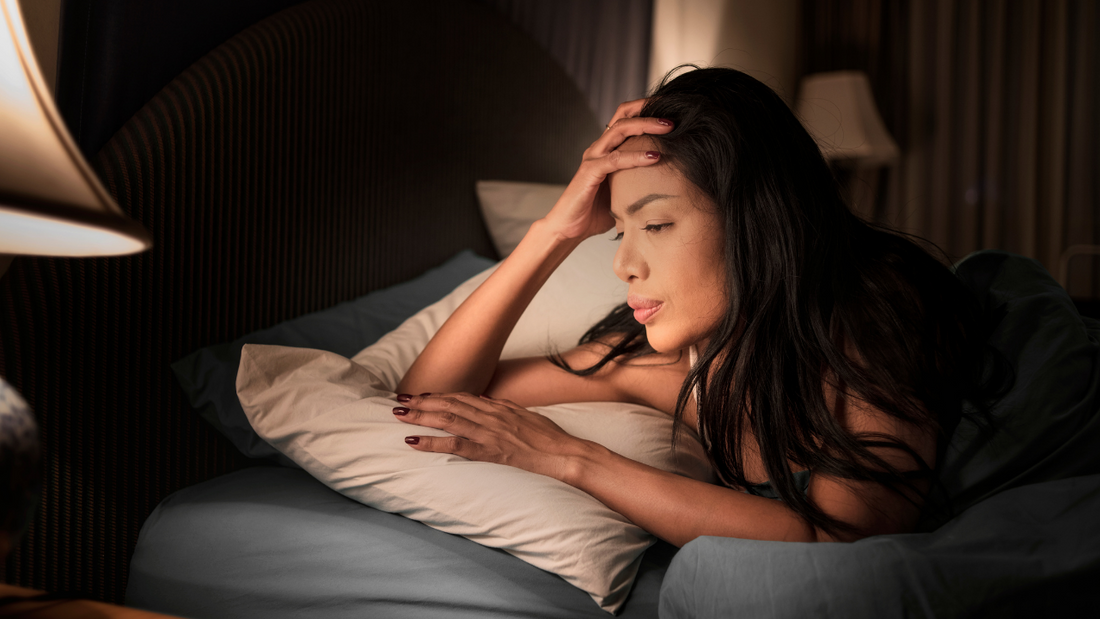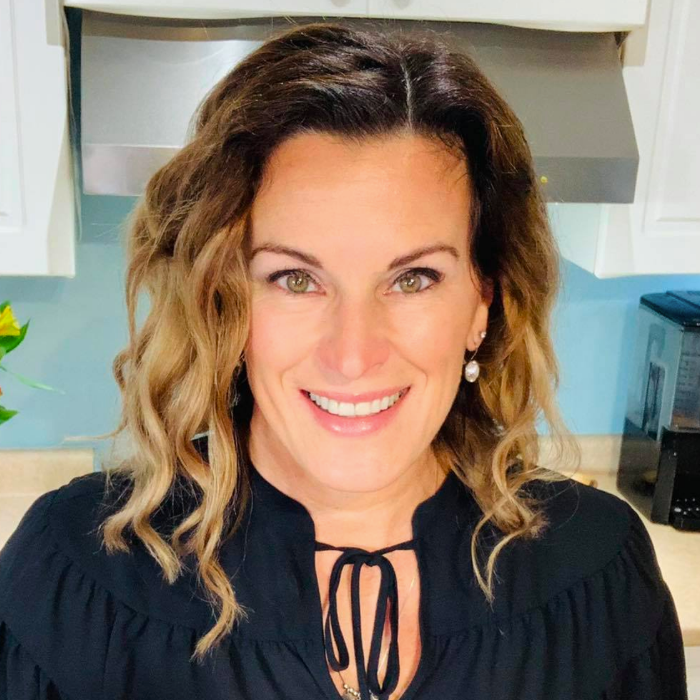Read Time: 5 min | Categories: Mental Health and Sleep
Alternatives to Melatonin for Sleep
Joyce Johnson, ND (Inactive)
Share this article
If you find yourself chasing a good night’s sleep night after night and suffering from sleep deprivation, you are not alone.
It is recommended that adults sleep between 7–9 hours a night, and for good reason. Depriving your body of sleep over the long term may cause a weakened immune system, diabetes, depression, high blood pressure, and obesity.
Sleep is necessary for your body to recover from the day’s activities, repair damaged cells, and ensure your nervous system gets its much-needed recharge. [1,2]
When it comes to supplements for sleep, the first thing many people think about is melatonin. Melatonin is typically taken 30–90 minutes before bedtime and can help people fall asleep faster, sleep longer, and get better quality sleep. It’s used to help reset the natural sleep-wake cycle, temporarily for jet lag, and it can help reduce the time to fall asleep in people with delayed sleep phase syndrome (DSPS).
However, for some people, melatonin supplements may not be the best option, and there are several reasons for this:
- Potential interaction with other medications
- Some people report feeling groggy upon waking when taking melatonin, even at a very low dose
- If you are pregnant or breastfeeding
- If you are taking immunosuppressive medications If you have depression, hypertension, a hormonal disorder, diabetes, liver or kidney disease, cerebral palsy, seizure disorders, or migraines
- If you need to drive or use machinery within 5 hours of taking melatonin
What are Your Options?
Breathing
The simple act of pausing for a moment several times a day to take deep breaths and consciously relax can be quite effective in letting go of stress and promoting a more peaceful frame of mind.
Exercise
Exercise, along with relaxation techniques, has profound benefits on reducing stress and improving sleep.
Sleep schedule
Keep a regular sleep pattern. Going to bed and getting up at roughly the same time every day will train your body to sleep better. Also, avoid napping during the day. Napping will make it much more difficult to sleep at night. If you must nap, limit it to 30 minutes and make sure you are awake for at least four or more hours before bedtime.

Bedtime Routine
Similar to having a sleep schedule, a bedtime routine can help you wind down so you can fall asleep more easily. Here are some suggestions:
- Take a warm bath.
- Do some light stretching. We recommend these five best stretches to do before bed.
- Have a cup of herbal tea. Make sure to choose a tea that promotes relaxation, such as chamomile.
- Read a book before going to bed. Bedtime stories aren’t just for kids! Whether you’re reading or listening to stories, they can help you relax and quiet your mind.
Sleep Environment
Make your bedroom conducive to sleep by keeping it dark, cool, and quiet. Clutter in your room and the colour of your walls can also affect your ability to fall asleep. You also need to refrain from using electronics (smart phones, laptops, tablets, TV) within 30 minutes of bedtime as the blue light from these devices restrains your natural production of melatonin.
For more tips on how to improve your sleep, read The Ultimate Guide to Better Sleep.
 Supplements
Supplements
While melatonin may not be right for you, there are other supplements that can help:
- Magnesium is often used as a natural sedative. Magnesium deficiency can result in difficulty sleeping, constipation, muscle tremors or cramps, anxiety, irritability, and pain.
- Ashwagandha is an adaptogenic herb that may help you fall asleep faster, sleep for longer periods of time, and have better sleep quality. [3] It is best known for its stress-reducing effects. This herb helps lower levels of cortisol, a hormone produced by your adrenal glands in response to stress.[4]
- 5-HTP is an amino acid that increases the production of serotonin, a hormone that regulates sleep and promotes a feeling of well-being.
- L-theanine is an amino acid found in green tea, which supports feelings of relaxation and can lower the body’s response to stress, resulting in a more restful sleep.
- Valerian root is a traditional herb used to ease pain and improve sleep, digestion, anxiety, and headaches. Valerian may increase the body’s available supply of gamma-aminobutyric acid (GABA), a neurotransmitter that eases physical tension and stress.
- Chamomile contains apigenin, an antioxidant that binds to certain receptors in your brain that may promote sleepiness and reduce insomnia.
- Lavender has anxiolytic properties, acts as a sedative, and works with GABA to calm the mind. Lavender is often used as an essential oil in diffusers, bed sheets, and baths.
- Glycine helps make serotonin, a hormone that can affect sleep. It also increases blood flow to your extremities, resulting in a decrease in core temperature, which is important for your body’s progression to falling asleep. [5]
It is important that you always discuss any changes in your health and supplement regimen with your health care practitioner. There are many health conditions that may be causing your sleeplessness, so ensure you are assessed by your health care practitioner to find out these causes. This article is not medical advice, and any changes to your current protocol should be discussed with a health care practitioner.
